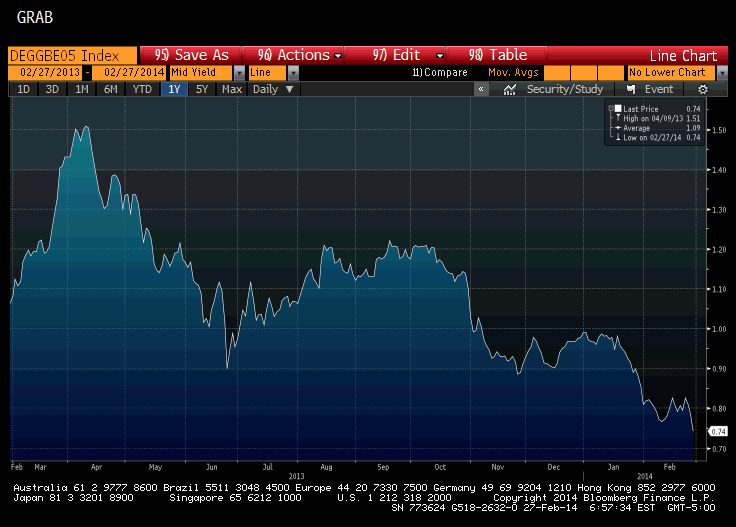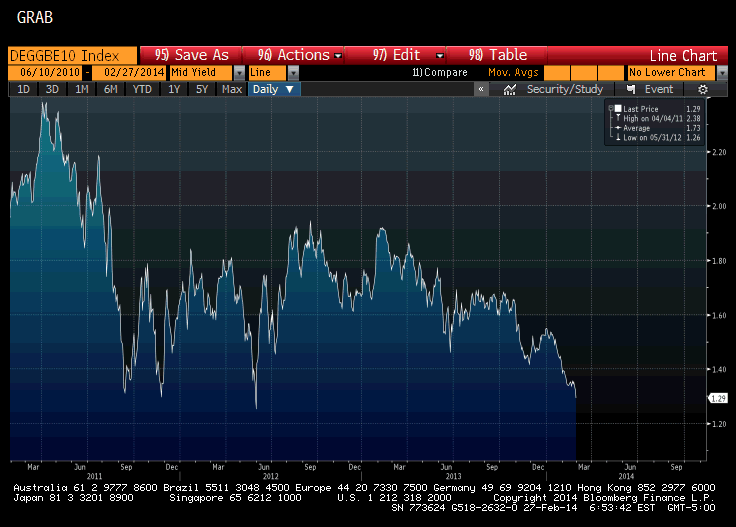German automotive industry at a crossroads
Kategoria: Business
ECB officials repeatedly have said that inflation expectations are anchored, which is part of their argument that plays down the threat of deflation. The difficult thing about inflation expectations when it comes to measuring them, they can be elusive.
Generally speaking, there are two ways. The first is surveys: simply ask people. There are all sorts of methodological problems. Perceptions, in part, depend on where one sits. Also some research suggests differences between genders as well.
The second general way economists and policy makers try to measure inflation expectations is market instruments. Here there a various instruments and curve to look at. One approach is to look at the break-even rates on inflation linked bonds.
The Great Graphics here (created on Bloomberg) show the break-even rates in Germany. The top chart is the 5-year break-even over the past year. It is make new lows today.
The lower chart shows the 10-year break-even, but rather than show just the past 12-months, we took it back to the middle of 2010. Today the 10-year break-even is falling to levels not seen since mid-2012.
There are at least two short-comings of the break-evens as indicators of inflation expectations. First, the secondary market for inflation-linked bonds is not very deep in Germany. Second, the break-evens seem to be frequently sensitive to the direct of yields. The conventional 10-year today, for example is off almost 7 bp, a little more a fifth of the decline seen so far this year.
Of course, the soft German state inflation reports, which have translated into a softer national figure has also played a role here. The preliminary Feb CPI rose 0.5% for a 1.0% year-over-year rate, down from 1.2% in January. This underscores the risk to tomorrow’s EMU flash CPI report. . It is expected to be unchanged at 0.7% year-over-year, and the risk is a for a 0.6% print.
The problem with low German inflation, is that it forces other countries to regain competitiveness to have lower inflation than Germany. This is difficult without risking deflation. The other issue, of course, is what the ECB can effectively do about it, assuming they wanted to. Pressure on Germany to reflate seems like shouting into the wind. A 10-15 bp cut in the repo rate means little. A negative deposit rate may not fuel goods inflation, but be disruptive for banks, financial institutions and households.
While some economists are still holding out the possibility of sovereign bond purchases (QE), it would likely split the ECB, especially given the recent German court opinion. Moreover, it is not clear that QE has really fueled inflation where it has taken place. After the open-ended QE3 in the US, the Fed continues to express concern about persistently low inflation. Japan’s inflation seems to be a largely a function of the yen’s decline (not QE) and energy prices (which are included in its core measure). Recall the Q4 13 GDP deflator was still in negative territory.




